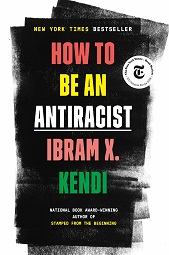 Last Sunday, David Blankenhorn and Jonathan Rauch penned an op-ed for the New York Times and made the case for a compromise between those on opposite sides of the same-sex “marriage” debate. Here’s what they proposed:
Last Sunday, David Blankenhorn and Jonathan Rauch penned an op-ed for the New York Times and made the case for a compromise between those on opposite sides of the same-sex “marriage” debate. Here’s what they proposed:
“It would work like this: Congress would bestow the status of federal civil unions on same-sex marriages and civil unions granted at the state level, thereby conferring upon them most or all of the federal benefits and rights of marriage. But there would be a condition: Washington would recognize only those unions licensed in states with robust religious-conscience exceptions, which provide that religious organizations need not recognize same-sex unions against their will. The federal government would also enact religious-conscience protections of its own. All of these changes would be enacted in the same bill.”
This suggested compromise position is problematic on many levels. The first and most obvious problem is that it is not really a compromise. When you boil it down, Civil Unions are really just “gay marriage” under another name. To some extent, this article acts as if the debate is about who gets to use the word marriage. Nothing could be further from the truth.
At bottom, this debate is about whether or not the union of a man and a woman will be privileged in law. Homosexual activists and their liberal allies think that the union of a man and woman should not be privileged in law. The vast majority of Americans believes that it should. This reason for the widespread antipathy toward gay “marriage” is very simple. To privilege in law other kinds of unions (e.g., homosexual unions, polyamorous unions, polygamist unions, etc.) denigrates marriage and its concurrent societal benefits.
I’m not going to put the same-sex “marriage” debate to rest with a single blog post. I simply want to point out that the Civil Union proposal is no compromise. Anyone who pretends that it is has given up the fight for marriage.




18 Comments
glenn gillane-duggin
Not all folks who are allies with the lgbtq community are liberal. Some of the most conservative people i know just don’t care and they don’t want the government telling them what to do. This is not my position so i am not able to argue its finer points but i thought i should just raise that issue.
I guess this could open up a whole debate about naming in post-modernity i.e. who gets to name folks something or another but who wants to have that debate anyways?
solus non gravatus
glenn gillane-duggin
Nathan
“Some of the most conservative people i know just don’t care and they don’t want the government telling them what to do.”
The apathy of the “just don’t care” crowd is certainly a large issue in America today. The “I just don’t want the government telling me what to do” crowd are living in a cave. Everything we do in this country is government controlled. We live according to the laws of the land. This whole notion of personal privacy is not in the US Constitution. You do not have the freedom to do whatever you want under your own roof.
This is a debate about where the country is going. And laws are being changed to tolerate and celebrate homosexuality under the guise of civil and/or unalienable rights. Apathy is cowardice because someone will win this debate and laws will be written.
B.C. McWhite
Not that I think it will matter to you, but your final comment was the last straw for me with your blog.
It’s the sweeping, arrogant, declarative statements like this: “Anyone who pretends that it is has given up the fight for marriage.” that drive me and plenty of other conservative, Christ-loving, Bible-believing people nuts.
Not that I think it will matter to you, but you do know that you have essentially just publicly said (since many people read both of your blogs) that Justin Taylor has “given up the fight for marriage,” right?
Next stop: Google Reader to unsubscribe
Denny Burk
B. C. McWhite,
I think you have misunderstood Taylor’s supposed support for civil unions: http://theologica.blogspot.com/2009/02/compromise-on-same-sex-marriage-debate.html. He’s talking about the proposal put forth by Ryan Anderson and Sherif Girgis. Their proposal doesn’t actually give any legal recognition to homosexual unions per se. That being said, I still don’t like this compromise, but it’s a suggestion that is a far cry from the Civil Unions that are proposed in the NY Times Op-Ed.
Thanks,
Denny
Joe
Dr. Burk, should we legislate against adultery according to your premise “[homosexual marriage] denigrates marriage and its concurrent societal benefits.”i think the debate is a little more difficult then you make it out to be. you are also presupposing (a theological position) as to the nature of the state, which hasnt been made by many conservatives yet…
i think if your going to be consistent you need to 1. address the nature of the state, and 2. be consistent with other matter-of-facts concerning the denigration of marriage (such as adultery, etc…)
cheers
Joe
Joe
Darius T
PB, Denny’s correct here, I believe. Taylor is not supporting this particular proposal, but the Anderson/Girgis alternate plan. I generally like the A/G idea, but the NYT one has significant problems (as Anderson and Girgis point out). The A/G alternative pretty well captures my ideal of having non-sexually based contractual unions.
Of course, it remains to be seen if the gay lobby would be willing to compromise. If it isn’t, that would indicate that “equal rights” have never been the agenda, but rather the forcing of perversion onto society (in particular, the Church).
B.C. McWhite
Denny and Darius,
I stand corrected on the difference between the NYT proposal and the A/G proposal. My sincere apologies for the mistake.
I still can no longer read this blog because (what I perceive to be) your continued proclivity to make (to use my own words) sweeping, declarative statements lacks humility and charity, and, in my humble opinion, generates angry evangelicals who foment division and disunity.
I believe your blog to be a good representative of the “known-for-what-we’re-against” brand of Christianity, rather than the “known-for-what-we’re-for” brand. I’m come to expect that what I’ll find here is mostly “What Dr. Burk is against today” (cf. your last four posts).
I truly regret being so critical – it really does grieve me and run counter to my inclinations. And I apologize if I, myself, haven’t extended enough charity. I suppose I just wish your blog did more to promote the gospel rather than lambaste everything that isn’t the gospel.
Derek
B.C. White,
We could definitely do without angry people in the evangelical community who foment division and disunity. I don’t think conservative Christians have a monopoly on these character traits.
As a for instance, it is my humble observation that many in the emergent/emerging movements don’t pass up many opportunities to throw stones and deliberately agitate people, especially those who stand for a high view of Scripture. These days, it takes a lot of guts to do so.
B.C. McWhite
Derek,
Agreed. I didn’t mean to imply that “conservative Christians have a monopoly on these character traits.” Only that we we’re testing the antitrust laws.
Paul
I don’t know this B.C. McWhite cat at all, but if his blog is any indication of what he’s about, I’d highly suggest listening to what he has to say. I’m impressed. And anyone whose front page is taken up by a picture of John Piper putting someone in a leglock is ok by me.
John Holmberg
Amen to that, Paul!
And well said, B.C. McWhite
Darius T
Oh sweet irony… 🙂
John Holmberg
I guess that’s double irony now… 🙂
Paul
yeah yeah yeah…
Paul
Darius,
is this B.C. guy your pastor?
Darius T
Yep, my men’s pastor and good friend.
B.C. McWhite
Ooooh, warm fuzzies.
Darius T
If we had played b-ball tonight, there would have been a distinct lack of warm fuzzies.